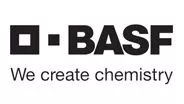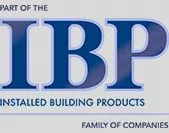How Much Insulation Does Your Home Need?

Nobody’s home is a perfect 10 out of 10 when it comes to energy efficiency. However, there are always solutions for improving insulation and making your home more energy-efficient and comfortable all year. One of the best solutions is installing insulation.
As you’re getting ready to insulate your home, one of your first questions will most likely be, “How much insulation do I need?” The amount of insulation your home needs primarily depends on two factors:
- The region you live in
- The area of your home that needs to be insulated
The Right Amount of Insulation for Your Home
What Is Insulation R-Value?
R-value is an important part of insulation — it indicates a particular material’s resistance to conductive heat flow. Generally, the higher the R-value (thermal resistance), the greater the insulation’s effectiveness. The R-value depends on the insulation’s type/material, thickness and density.
Although a higher R-value generally means a more effective insulator, the highest R-value possible may not necessarily be right for your project. One example is if the space you’re insulating already has some insulation.
Also, houses in certain climates don’t need as much insulation as others. For example, Oklahoma’s weather varies significantly from Florida’s weather. That’s why different regions of the U.S. have different recommended insulation levels. In the Tulsa area, we’re in zone 3.
Common Insulation Concerns & Questions for Homeowners
Learn More
What type of insulation do you need? Learn more about:
Contact Installed Building Products Tulsa today to learn more.
Insulation FAQs
What is spray foam insulation made of?
Spray foam insulation is primarily composed of two types of chemicals: polyurethane and isocyanate. When these chemicals are combined, they undergo a reaction that causes them to expand and solidify into a foam. This foam is an effective insulating barrier, filling gaps and sealing spaces to prevent air leakage and heat transfer.
Can I install insulation myself?
Installing insulation yourself is possible for some types, but it’s crucial to understand the process and safety precautions involved. Simple insulation materials like rolls of fiberglass or mineral wool can be relatively straightforward to install with proper protective gear and following manufacturer instructions. However, more complex insulation types, like spray foam or blown-in insulation, often require specialized equipment and expertise. For these, it’s safer and more effective to hire a professional installer to ensure proper coverage and safety.
What’s the best type of insulation for attics?
The best type of insulation for attics depends on various factors, including climate, budget and personal preferences. However, blown-in insulation, such as loose-fill fiberglass or cellulose, is often recommended for attics because it can conform to irregular spaces and provide excellent coverage. Spray foam insulation is also a popular choice for attics because it can seal air leaks, improving energy efficiency.








